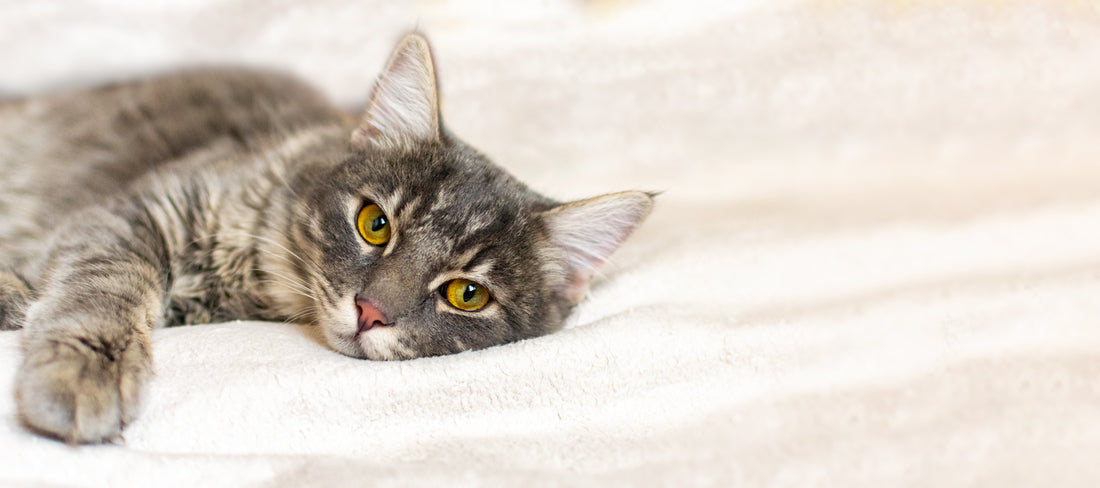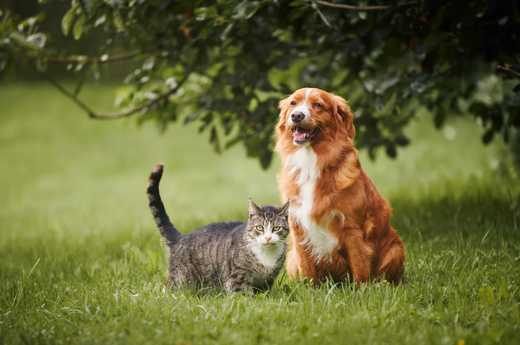Cats, often seen as independent creatures, can also experience emotional ups and downs. Recognising and addressing signs of sadness in your feline friend is crucial for their overall wellbeing. Let's delve into the world of feline emotions and discover how to support your cat's mental health.
Recognising Feline Melancholy
Changes in Behavior
Cats are masters of disguise, but even they can't hide their feelings completely. If you notice a change in your cat's usual playful and energetic behaviour, it might be a sign that something's up. A sudden drop in activity levels, from zooming around the house to spending most of their time napping, could indicate they're feeling less than perfect.
Loss of Appetite
A depressed cat often shows a decreased interest in food. They might eat less than usual or refuse to eat altogether. This change in appetite can lead to weight loss and further health complications.
Changes in Sleeping Patterns
Cats with depression might sleep more than usual, often in hidden or unusual places. Some cats may also show signs of restlessness and have difficulty sleeping.
Withdrawal from Social Interaction
Social cats might start avoiding human interaction and become withdrawn. They may hide more frequently and show little interest in playing or cuddling with their owners.
Neglect of Grooming
Cats are known for spending countless hours grooming themselves. If you notice your normally immaculate feline friend starting to look a little less polished, it might be a sign they're feeling down. A decline in grooming can often indicate underlying emotional distress.
Common Causes of Feline Depression
Environmental Changes
Cats are creatures of habit and can be sensitive to changes in their environment. Moving to a new home, rearranging furniture, or welcoming a new pet can be stressful for them and might lead to feelings of sadness or anxiety.
Loss of a Companion
Cats form strong bonds with their human and feline companions. Losing a loved one can be tough on them, just like it is for us. Grief and sadness are natural reactions to such a loss.
Lack of Stimulation
Cats need mental and physical stimulation to stay healthy. A lack of toys, interaction, and playtime can result in boredom and depression.
Illness and Pain
Chronic illness or pain can significantly affect a cat’s mood. Conditions like arthritis or dental issues can make them feel miserable and lead to changes in their behaviour, including sadness.
Addressing and Managing Feline Depression
Provide a Stimulating Environment
Cats are natural explorers. Keeping their minds and bodies active is key to their happiness. Fill your home with exciting toys, scratching posts, and climbing structures to encourage exploration. Don't forget to schedule regular playtime sessions to bond with your furry friend and provide mental stimulation.
Maintain a Routine
Cats thrive on routine. Maintaining a consistent schedule for feeding, playtime, and other activities can help your cat feel more secure and less anxious.
Introduce New Activities
Introducing new activities can re-engage a depressed cat. Puzzle feeders, new toys, or even training sessions can provide mental stimulation and improve their mood.
Ensure Proper Nutrition
A balanced diet is important for your cat’s overall health and can impact their mood. Consult your vet to ensure your cat is receiving the proper nutrients and consider dietary supplements if necessary.
Create Safe Spaces
Provide safe, comfortable spaces where your cat can retreat and feel secure. This could be a cosy bed in a quiet room or a perch with a view.
Address Health Issues
Regular veterinary check-ups are essential for detecting and addressing any underlying health issues that could be contributing to your cat’s depression. Treating medical conditions can significantly improve your cat's mood and energy levels.
Social Interaction and Bonding
Spend Quality Time Together
Spending quality time with your cat can strengthen your bond and improve their mood. Engage in gentle play, petting, and talking to your cat regularly.
Use Positive Reinforcement
Positive reinforcement is a fantastic way to boost your cat's mood. Showering them with treats, praise, and affection when they're being playful or curious can help lift their spirits.
Consider a Companion
Cats are often happiest when they have a companion. If your solo cat seems a bit lonely, introducing another feline friend might be the perfect solution.
Enhancing Your Cat’s Emotional Wellbeing
Recognising and addressing your cat's emotional well-being is crucial for their overall happiness and health. By understanding the signs of feline depression and taking proactive steps, you can create a nurturing environment for your feline friend.
At Healthy Pet Co., we are committed to providing high-quality, vet-approved products and valuable information to support your pet’s wellbeing. Visit our blog for more tips on pet health and discover our range of products designed to keep your furry friend happy and healthy. Together, we can help your pets thrive.




